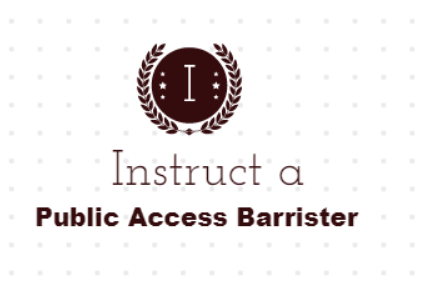By Sophie Stevens, Pupil Barrister at 9BR Chambers
Beating the Stigma:
Barristers are often told to put their best point first in advocacy, and you are probably shouting at the page as I begin by talking about the stigma neurodivergent people face. That is hardly my best point. It is in fact the exact opposite. However, without understanding that there is a stigma faced by neurodivergent individuals, we cannot acknowledge the real conversation needed about defeating stigma and changing the narrative.
Neurodivergent people may read, write, and process complex material differently or at a different speed to others. The most common example of stigma is the assumption that a neurodivergent individual is not ‘intelligent’ or ‘academic’ because of these differences. For applicants to the bar, it is reinforced at every phase that ‘intellectual ability’ is an important criterion for applications. Combined with the stigma, this can be particularly discouraging. However, the assumptions at the root of this stigma are simply not true.
The stigma stops us from seeing the positives that neurodivergent individuals bring to the profession. There are plenty of successful barristers in the profession who are neurodivergent. Unfortunately, misunderstandings plague the bar, and this means that many individuals are unwilling or feel unable to speak about or disclose their neurodivergence. This is even more true with pupillage applicants. Often, applicants fear that disclosing their neurodivergence will hinder their application in comparison with neurotypical candidates. From the applicant’s perspective, it doesn’t matter if it comes as a direct result of conscious or unconscious bias that neurotypical brains are deemed superior.
So how do we combat this? It is about re-writing the narrative and minimising any misunderstanding of how neurodivergent brains work. It is important for conversations to refocus on the positives that neurodivergent individuals bring to the profession. That should be at the forefront of the narrative.
As a dyslexic person, one stigma I face is that people think I don’t enjoy reading or that I simply ‘can’t read’. (I would be in a sticky situation as a pupil barrister if I didn’t enjoy reading!) The truth is, I do enjoy reading, both recreationally and professionally. But I read differently. I take longer to process material, often needing more breaks and sometimes needing to read things over a few times to fully understand. Crucially, this doesn’t mean I don’t make it to the end of the book or the papers. Instead, I have simply taken a slightly different route to get there.
This concept applies to all neurodivergent people. We achieve the same ends, but by different means. In my view, there is a huge amount to be gained from doing things differently and in bringing a different perspective to legal situations.
Being a Neurodivergent Pupil:
As a neurodivergent individual starting pupillage, I was apprehensive about the response and support I would receive from Chambers, particularly as a self-proclaimed neurodivergent warrior! Fortunately, Chambers has proactively engaged with me on the topic of neurodiversity, and continues to do so. They make me feel comfortable discussing the way I work and what, if any, support I would benefit from. This has not only been with my pupil supervisors, but with the clerks and senior members in Chambers. This makes me feel valued and understood, without judgment or preconceptions.
I don’t mention this simply to gloat about my chambers. I mention this because it is evidence that progress can be made by starting a conversation. In my experience, there seems to be an assumption that neurodivergent people are always asking for something or needing something, sometimes even seen to be amounting to ‘unreasonable expectations’. This is rarely the case. There is a difference between unreasonable expectations and reasonable active adjustments in daily life.
My example is receiving criminal case papers. In an ideal world, because I read slower, my papers would be sent to me 24 hours in advance, with a full day’s prep time. Of course, the criminal bar does not work that way, and the clerks are limited in what they can do (they aren’t magicians after all!). An unreasonable expectation would be expecting the clerks to work magic and get my papers 24 hours before any hearing, even though the case comes to them at the very last minute. Instead, a reasonable adjustment is having an open conversation, saying, ‘I am dyslexic and I would appreciate it if the papers can be provided to me as soon as possible. I understand this won’t always be possible’. It’s about having an understanding, a conversation, and all parties being reasonable.
Often neurodivergent people are simply asking to be listened to, understood and supported. If people aren’t aware of neurodivergence then how can support be offered? Because of our conversation, on the rare occasion that a brief comes in early, my clerks know I would appreciate it being sent to me earlier. If you don’t ask you don’t get. The people working at the bar are good but aren’t mind readers! It is imperative that individuals feel confident coming forward and disclosing their neurodivergence so chambers can understand, adapt, and provide active adjustments.
Now you are probably thinking, “Oh no, she’s just admitted that she can’t read papers quickly. If they can’t get it to her 24 hours before, how is she going to survive as a criminal barrister?” This brings me to how neurodivergent people succeed at the bar and what they bring to the profession.
Changing the Narrative:
Neurodivergent individuals bring different skills to the table and are often fantastic problem solvers who can look at situations in 3D rather than 2D. My dyslexia has helped me develop strong and confident advocacy skills. I enjoy expressing my thoughts verbally and presenting them in an engaging way for a judge or a jury. Neurodiversity is often an ability rather than a disability. I take pride in it.
The reality is that sometimes neurotypical people even struggle with the last-minute reading. As someone who has struggled with it all my life, I am more practised at reading material last minute and finding the information that I need in pressured situations. I have trained my brain to find the key parts, and find them quickly, because I know I don’t always have the time that is required. I have also become a rapid typist who can often recall a point or fact that someone else has missed or decided not to pursue. For my clients and instructing solicitors this is a real benefit.
It would be a pointless task for me to try to list all the things that being neurodivergent allows me to do. Why you ask? Well, it is important to remember that every neurodivergent person has different skills. It is not a generic thing. My strength may be someone else’s weakness, and vice versa.
The bar has become more focused on diversity in recent years, seeking barristers that accurately represent society. 1 in 7 people (more than 15% of the UK) may be neurodivergent. The ‘may’ is key. Often individuals might not know they are neurodivergent. They might be diagnosed later in life, or never at all. For lay people in the criminal justice system, it is estimated that around 1 in 3 are neurodivergent. It can be extremely beneficial for clients to be represented by barristers that have neurodivergent conditions. We bring an understanding to the case that a neurotypical brain cannot, often better relating to these clients.
So how do we bring more neurodivergent individuals into the profession? Visibility is the key. Having more successful neurodivergent barristers, particularly at the senior end, would assist with showing how incredible being neurodivergent is. At the junior end, it is important that we are visibly discussing our neurodivergence, and our successes in this profession because of it.
One of the beauties of the bar is that every barrister is different. Whether they are a meticulous and intricate drafter, or a formidable jury advocate who can captivate a room. Both are important and both deserve recognition. If differences can make the bar more attractive, then neurodivergent brains can only inject colour into that beauty by bringing more difference to the forefront of the profession.
Sophie Stevens – Pupil Barrister at 9BR Chambers
Further Recourses:
https://www.counselmagazine.co.uk/articles/neurodiversity-the-bar
https://www.counselmagazine.co.uk/articles/neurodiversity-pupillage-recruitment




